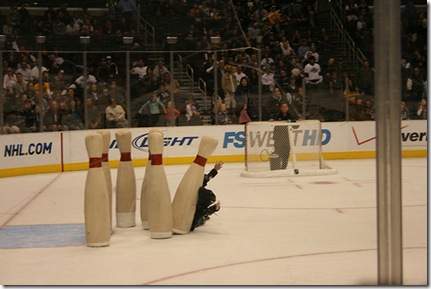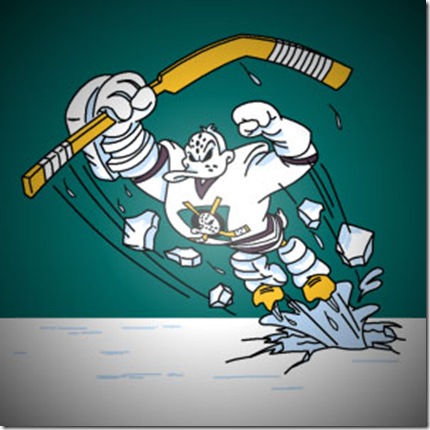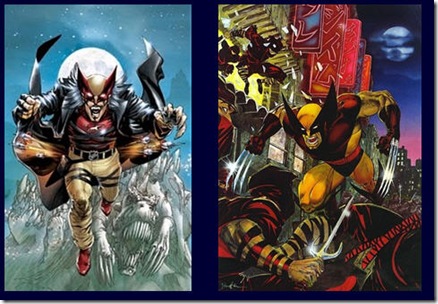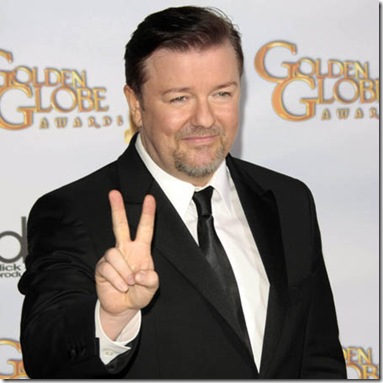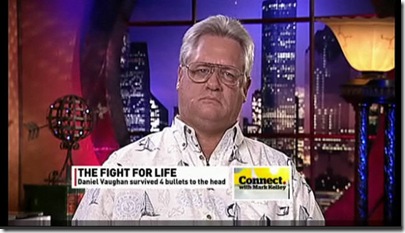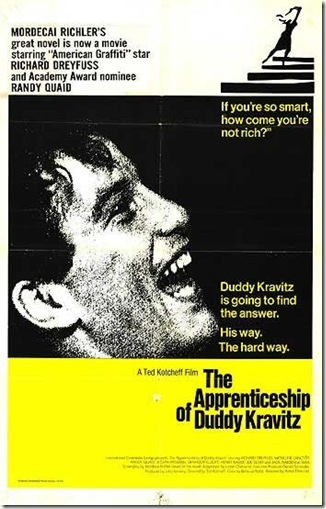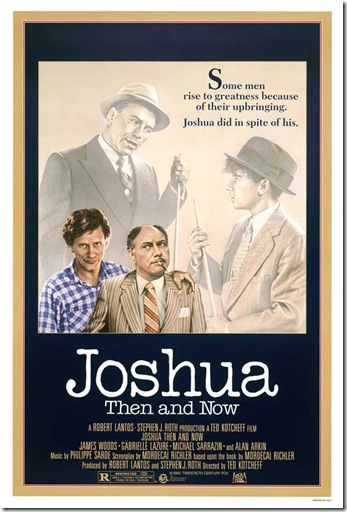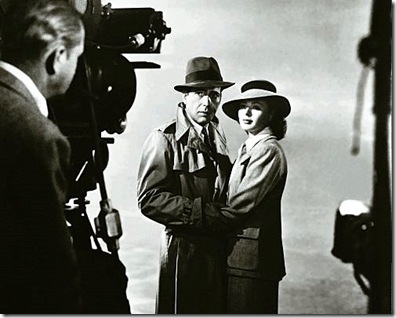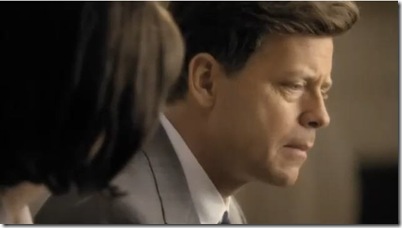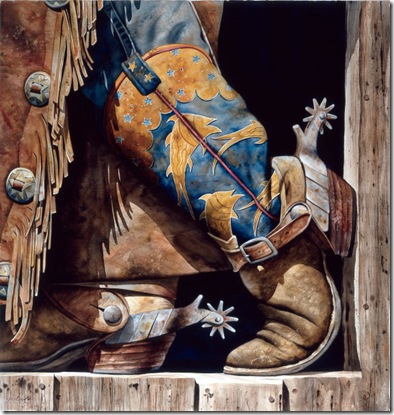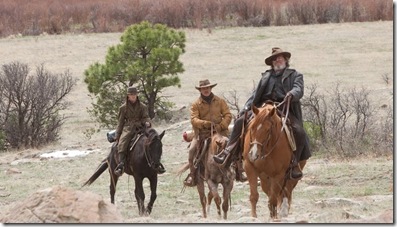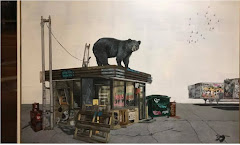Sunday, January 30, 2011
Lazy Sunday #156: "I'm Keith Hernandez"
I guess that's news in LA -- or it at least fills space while Charlie Sheen is in rehab.
But I think the whole thing started with seeing "The Fighter" (Run, don't walk) just a great biopic with astonishing performances from all involved, a tight little script, terse direction and great music by "The Mahones", "Dropkick Murphys" and -- um, maybe I'm showing my true colors here -- "Whitesnake".
Mark Whalberg deserves some kind of special award for both the kind of understated bedrock performance that allows everybody else in the cast to go into full fireworks mode -- and the similar quiet dependability of a producer who can carry a project like this through the obstacle course of past sport movie clichés and current Hollywood market-think to fruition.
A lot of people dismiss sports movies because they can usually only end one way if the audience is going to go home happy and you can therefore see that ending coming a mile away.
But like the sports they profile, movies in that genre succeed not because of the outcome but through the unexpected human insight and revelation of character they exhibit along the way.
Anybody can make a sports movie. But it takes a cinematic master to make one you want to see more than once.
John Ford, a cinematic master who transitioned from silents to talkies with a wrestling movie called "Flesh" once famously said, "You can put anything you want into a movie as long as it's interesting." (You kids at Telefilm should write that down and pin it up in your cubicle).
That quote may explain the thinking behind the other sports movie I saw this week, Rob Perri's "I'm Keith Hernandez" described by The Village Voice as an " unauthorized, unlicensed, gonzo pastiche".
I'm not sure how else you'd label a film that mixes baseball footage with anti-drug commercials and 80's porn while alluding to a connection between the 1986 NY Mets and the Iran-Contra scandal.
What's also interesting here is Perri's theory that pop culture heroes have become our surrogates for real experience.
He's also quite protective of his work, so if it disappears from this post, you can find it here -- or maybe even better, buy your own copy from the filmmaker himself here.
This is the kind of sports movie you're going to want to see more than once and one that'll be rolling around in the back of your head the next time you begin to admire or buy after shave from some guy who can mostly just throw a ball or run fast.
Which I think makes Rob Perri some kind of cinematic genius. Enjoy your Sunday.
I'm Keith Hernandez from water&power on Vimeo.
Tuesday, January 25, 2011
It Always Seems Like A Good Idea At The Time
"If it doesn't sell, it isn't creative." -- David Ogilvy
The ultimate purpose of any marketing campaign is to get consumers to buy your product. Some are more successful than others at re-exciting current customers or attracting new buyers. But every now and then one comes along that really makes you wonder what exactly they're trying to achieve.
Usually, that's a sign of either desperation or confusing what your target audience really wants with what appears current in the popular culture.
TV Execs make this mistake all the time, asking for characters who represent a certain strata of society ("Make him a Sk8tr Boy") or reflect a current trend ("She should wear Yoga pants and listen to Cold Play").
In a recent podcast about his latest film "The Social Network", the interviewer told Aaron Sorkin that the film has inspired a feeding frenzy among Hollywood studios for scripts about "My Space", "Twitter" and almost every other social media or Internet success.
But Sorkin insisted the film wasn't about facebook. "It's about friendship and loyalty and what happens when those elements collide with money and power."
According to the screenwriter, the basics of drama first laid out by Aeschylus and Aristotle have more to do with the film's phenomenal success than how many people have a social media habit.
It was one of those truths about writing and reaching our fellow human beings that we all need to be reminded of from time to time. The real goals we need to keep at the forefront in a business that eternally seeks success by coat-tailing what has been successful elsewhere.
Last fall, the National Hockey League, perennially incapable of "growing the game" in non-hockey markets or even landing a major American TV deal, launched "The Guardian Project".
Marvel Comics founder Stan Lee was hired to create one Superhero for each of the NHL's 30 teams, who would then -- uh -- battle evil or something. But in the process, they would also inspire kids and young adults uninterested in hockey to embrace the game.
Lee's characters have been rolling out at the rate of one a day since the beginning of this month and will "come to life" at the NHL All Star Game on Sunday.
Their official debut is touted as being "a combination of an in-arena ice projection and hologram show as the 30 heroes save Carolina fans after their arch enemy takes over the arena".
Does anybody have any idea who Carolina fans' arch enemy is?
Over-priced merchandise?
The genius who decided a pig would make a great team mascot?
Maybe it's the PR guy who chose bowling with humans as the intermission entertainment.
This whole thing is the red-headed brain child of a marketing exec who thought it up 12 years ago as a way of getting kids interested in watching football. After the NFL had security escort him back to the elevator, he re-jigged it for hockey and the NHL said "Cool" -- proof that the head injury problem may be as much an issue at the New York head office as it is on the ice.
Since the symptoms of too many concussions include short term memory loss, it might explain why nobody remembered that the NHL tried this exact same thing in 1996 when Disney created "The Mighty Ducks" animated series to lure in young American fans.
It didn't work and what's more the final product was so embarrassing that no Disney network has ever re-run it.
Similarly, the heroes Marvel has created are already arriving with their own negative baggage. Designed as "kick-ass tough guys that represent the spirit of the team" most are afterthought copies of current or past Marvel heroes more likely to piss off the fan-boy community than inspire them to buy season tickets.
I mean, is this the Phoenix Coyotes' "mysterious Plains drifter" or Wolverine?
Just what does either being a superhero or hockey have to do with the Nashville Predators' "Predator", whose major skill is being a consumate musician?
And why has the league's largest fan base, Toronto Maple Leaf fanatics like me, been saddled with a Super hero who's a tree?
Albeit one who can fire "sap balls" from his fingertips.
"The Maple Leaf" (now there's an original name) was introduced yesterday and immediately ignited the wrath of the always quick to anger Leaf Nation. Comments from Leaf fans included:
"Cut him in half. Count the rings. Now you know how long it's been since we last won the cup."
"Can he spooge Maple Syrup to go with the Waffles tossed on the ice?"
And…
"I thought we already traded Nick Andropov."
Hockey bloggers and columnists from around the League have voiced similar sentiments from their own fans.
But the brain trust behind the Guardian Project, like the studio Execs responsible for "Jonah Hex" and "Speed Racer", insist that the current popularity of fictional graphic characters will overcome all obstacles to create an new wave of rabid young hockey fans.
They envision spin-off graphic novels, movies, video games and live arena entertainment capable of generating millions of dollars in profit. They also claim they've already turned down a TV deal because it involved only four "Guardians" when all 30 need to be a part of any adventure.
Have any of these legend designing geniuses stopped picking out a pin number for their future Swiss Bank Account long enough to contemplate how long it would take to set up 30 characters in a TV pilot, let alone 30 characters of equal importance?
Of course they haven't; anymore than they've considered how heroes allied against "evil arch enemies and their military machines" equate with the fierce team rivalries that pitch NHL arena emotions or the athletic courage and exceptional physical talent being exhibited on the ice surface.
While those originating the Guardian Project have apparently mapped complex story lines which "may take decades" to complete, even they can't come up with one reason why it will inspire a kid uninterested in hockey to become a fan.
In interviews they point to nebulous concepts like "Brand Recognition", "Social Media Activities" and "Hockey References".
Following this logic, a nine year old inner city kid in Detroit following "The Red Wing" (another original name) will be inspired either by the Facebook Zynga game or the hero's recollections of Gordie Howe to want to watch the current Red Wings play live.
It's a perfect example of the disconnect that Sorkin was talking about. The confusion of what's popular with why people really feel a product is worthy of them parting with their hard earned money.
It always amazes me that the Multi-Million or Billionaire owners of Sports franchises, most of whom got where they are by selling the Public a useful product or necessary service, suddenly spin off into believing that marketing a fictional muscled mascot will make them more successful than putting together a winning team.
Back in 1993, the Toronto ownership of the city's first NBA franchise chose to call their team, "The Raptors". This wasn't based on any relationship between the city or basketball and dinosaurs. It was because "Jurassic Park" had been a big hit movie in 1993 and the guys in charge of marketing figured it was the best way to get all those with dino-obsessed kids to buy into the dream.
Of course, it didn't work and probably disappointed those who came to the arena expecting to see the visiting team eaten. The Raptors struggled for years -- until they began to win -- and struggle once more because they've stopped winning.
Dinosaurs, meanwhile, never went out of style for subsequent generations of 9 year olds.
What sells hockey to those who live and breath it is the speed, the sacrifice, the courage and the dexterity it demands of all those who would play the game. What keeps people coming back are the real sub-plots of overcoming adversity, striving for perfection and facing real bad guys like Sean Avery.
It's about being a part of real passion instead of one manufactured for you.
If the NHL really wants to appeal to kids, it needs to show them that there is heroism and dedication to a team and a goal in real life rather than diluting and confusing the product with fictional characters with concocted agendas who can be plentifully found elsewhere.
Sunday, January 23, 2011
Lazy Sunday # 155: Mr. Warmth
I might've half-watched half of last Sunday night's Golden Globe Awards. Award shows don't matter to me and what gets said at them matters even less.
I thought host Ricky Gervais had a funny opening monologue and gradually lost interest from there, not realizing I was missing the destruction of everything that's holy about Hollywood.
As the firestorm over Gervais' jokes spread in the days that followed, I kept wondering what the big deal was. He hadn't said anything that hasn't been said elsewhere or before -- in supermarket tabloids, on television gossip shows, by the mainstream media.
"The Tourist" isn't a very good movie.
The girls of "Sex and the City" are getting older.
Some people think the Hollywood Foreign Press Association is corrupt.
A-list Gay actors are still in the closet.
Of course, Gervais said it better than most. And he said it in ways that made us laugh at what we make sacrosanct or turn into "That of which we do not speak."
He was just being honest.
Watching pundits condemn him, predict he'd "never work in this town again", or thrill at being able to repeat lines they'd never be able to utter as respectable TV newscasters or radio personalities or newspaper columnists, I began to realize how our growing fear of offending someone has gotten in the way of being able to be truthful about the way the world really is.
Maybe controlling language and tone protects somebody or serves some other agenda, I don't know. Maybe it's wrong to even identify someone by race or age or incompetence. Maybe we should all just try to be much nicer to one another.
A retired doctor I know claims it's unfinished business that makes us old and what makes us sick are the things we swallow that we should spit back out.
But everybody seems afraid to get things out in the open anymore. What will people think?
A Muslim, a Catholic and a Jew walk into a bar.
How can someone even type such a thing!?! Doesn't he know Muslims don't drink? Is he implying that Catholics do and that's the only place the Muslim could meet him? And why does there have to be a Jew? Everybody knows neither Muslims or Catholics like them that much. None of this makes sense.
Wait, is the Jew there so he can get this joke on television?
Sometimes we get so tied up trying to blunt or soften the point that we never actually get to it.
And those who profit or benefit from our inability to see something for what it really is continue to profit and benefit.
Once upon a time, there was a comedian nicknamed, "Mr. Warmth". He was a nobody doing "insult comedy" working the lounge of a Vegas Casino with hourly shows from midnight to 4:00 am.
Frank Sinatra and his Rat Pack were in town, a town Sinatra virtually "owned", filming a movie called "Ocean's Eleven". Most nights after shooting, the Rat Pack would perform in the main room of the Sands hotel. It was the stuff of showbiz legend.
One night, after the curtain came down, the Pack loped across the street for a night cap in the lounge. Mr. Warmth knew they were stars as big as Las Vegas got and making cracks about them could not only end his career but might find him his own hole in the desert.
But what he did was what he did, so he started cracking wise. He didn't say anything that hadn't been said before. But he said it to their faces. In front of other people.
Ten different Hollywood biographies will give you ten different versions of what broke the ice that night, what finally made everybody in that room realize that the hothouse flowers among them were no different from anybody else.
I choose to believe it was Sinatra standing to leave and "Mr. Warmth", Don Rickles, stopping him with, "Sit down Frank! We all had to listen to you sing!"
From that night forward, Rickles made a career of taking apart every inflated ego and societal cliché he encountered. He spared nothing and no one and a half century later you can't find anybody with a bad thing to say about him.
Deep down inside, we all have a special place for the truth.
Ricky Gervais exemplified the same honesty and the debate about whether his jokes went "too far" says much more about what's wrong with the rest of us than anything it says about him.
You can't say or write anything these days that isn't going to offend someone. Not anything. But maybe if there were more people with the courage to just spit it up instead of swallowing it back so it can fester in the silence and grow into something more deadly, the better off we'd all be.
Here's a taste of Don Rickles in his prime. Consider the power of honesty. And enjoy your Sunday.
Saturday, January 22, 2011
Whose News Is It, Anyway?
Maybe I'm way off base here. But I always thought a lot of the point of the Canadian Broadcasting Corporation was to provide a Canadian perspective on world events to Canadians and a distinctly Canadian face to the world.
Since both of those characteristics long ago became rare on CTV and Global, isn't that the main reason so many of us feel the Federal government needs to keep providing a Billion dollars a year to keep the CBC's doors open and the lights on?
But if all that is true -- how come the CBC seems to be populated by so many Americans lately?
Is it true that there's a belief within the news department that Canadians won't watch the news unless its contextualized by Americans?
A couple of weeks ago, Mother Jones magazine published a cover story about the ongoing post-earthquake chaos in Haiti, focusing in part on the prevalence of rape in the refugee camps.
The Mother Jones piece is a horrific read, claiming Haitian women by the thousands have been raped or gang raped in the tent cities. It describes brutal sex attacks on children and claims that there are simply no police or security to stop the attacks.
I couldn't believe this had been happening with chilling regularity and yet this was the first news of it to reach the outside world.
It was doubly troubling because we'd just had weeks of "in-depth" coverage on CBC on the recent Haitian elections, a Cholera epidemic and correspondents filing special reports to mark the one year anniversary of the disaster.
CBC journalists had clearly been in the camps, talked to the inhabitants about election corruption, the slowness of aid, the lack of progress. Had none of them heard the screams? How had they missed so pervasive a story?
Well -- they didn't miss it for long. Because within 24 hours of the Mother Jones story appearing online it was leading CBC Newscasts -- even using the magazine's illustrations as the background art for the reports.
But even when the coverage began coming from CBC's eyes and ears on the ground in Haiti it never expanded beyond what had been in the Mother Jones report -- which had to have been researched and written weeks earlier.
Had nothing changed? And if not -- why not?
And then the story was gone. Replaced by something else in the relentless need to find something new that is the 24 hour news cycle.
But I couldn't help wondering if the story had been one CBC journalists and editors had in fact missed (which said something about their journalistic skills) or if it had been deemed not newsworthy until it had been certified as important by an American publication (which suggested something else).
Anyone who watches CBC news regularly has noticed that reporters from NBC or CNN regularly file reports from foreign locales that once had been covered by a Canadian.
That might be somebody's idea of a cost saving strategy, but it seems to completely undermine the concept that the news from CBC have a Canadian perspective, delivered by someone with an understanding of why a story has resonance to Canadians.
It also doesn't explain why CBC news coverage is now wall-to-wall with interviews with American "experts".
On consecutive nights this week we were treated to the following -- the only neurosurgeon and guy who'd been shot in the head they could find to interview about Congresswoman Giffords recovery were American. The only avalanche survivor they could find to talk about people killed by avalanches in BC was an American. The only expert they could find to talk about the Toronto police funeral was from the LAPD.
Friday night, as Congresswoman Giffords was moved from an Arizona hospital to one in Texas, CBC didn't interview a brain injury expert from either the facility that had or would treat her, but one from Boston.
Odd when one of the foremost brain research centers in the world is at McMaster University in Hamilton and the network regularly plugs in a "Canadian Historica Minute" touting McGill University's medical icon Dr. Wilder Penfield who "drew the roadmap of the human brain".
Since Penfield was actually an American, maybe the message the CBC is trying to hammer home is that there aren't really any camera worthy brain surgeons in Canada.
And "camera worthy" is the operative phrase here.
When I was writing and producing "Top Cops" one of the elements that went into our story selection was the presence projected by the real life police officers narrating the stories we were telling. One of our first episodes included a cop who broke down in tears as he described almost dying from a gunshot wound.
It was compelling television. The president of CBS called after seeing dailies and said, "Wow. I've never seen a cop cry before! We need more of that!" And from then on we made a point of searching not only for cops with great stories, but those who could also tell them with an emotional impact.
In the process, I discovered there was an entire industry out there of former cops on a kind of motivational speakers tour, telling their real life story over and over. I also found footage of our crying cop, crying at exactly the same point in his narration on morning news shows, police graduation ceremonies and little league sports dinners.
It didn't take long for our crack team of researchers to regularly kick aside a great story because they realized they were also dealing with "a guy with an act".
That's an industry that has only grown with growing number of competitors in the 24 Hour News cycle. And there are victims of plane crashes and mine cave-ins who immediately begin making the rounds when a new tragedy occurs.
No doubt many of them are on the Rolodex of Frank Magid, the American consultant responsible for the changing face of CBC News. Apparently, Magid has already convinced CBC Canadians need their news verified by an American source before they'll accept it as fact.
That might be just his way of moving CBC closer to the style of American broadcasting he's more familiar with despite that fact that it has caused a mass exodus of Canadian viewers from the "New" News at CBC.
On the other hand, that exodus might be because CBC often covers stories as if the audience were actually American to begin with.
In the wake of the Tucson shooting, despite accurately reporting that there was no evidence linking the shooter's motives to American political rhetoric, CBC News still made that same rhetoric debate a recurring topic on many of their discussion panels.
And, despite all the austerity measures that may have led CBC to rely on American news services and reporters, and despite stories which had much more direct impact on many Canadians (like Haiti) the network felt the need to dispatch a special correspondent to the scene in the person of Keith Boag.
Boag is recognized as an extremely capable journalist. Yet what he sent back from Tucson amounted to little more than a smear story on the entire state of Arizona, calling it "the meanest place in America" and regurgitating all the "blame the hate-filled rhetoric of the Right" that pretty much everybody else had either moved past or forensically discounted by the time his story ran.
While I can't embed the video. You can see it for yourself here.
Among the items covered in Boag's report were "The only female chain gang on the planet" seen burying bodies in a pauper's field Boag uses as proof that "Arizona extracts a particularly high price from those who fall out of line".
I'm not sure if he was describing the deceased homeless or the inmates burying them. But you wonder if Boag has ever seen the "high-price" extracted from the homeless freezing on sidewalk vents outside CBC headquarters or what Canadian prisoners endure not far across town in Toronto's Don Jail.
Our intrepid reporter goes on to describe Arizona as responding to the current economic crisis and immigration issues with an "enthusiastic meanness" -- perhaps news to the tens of thousands of Canadians who happily retire or escape our Winter there -- or the many thousands who are regularly treated at the Phoenix branch of the Mayo Clinic rather than endure the multiple levels of economic or humanitarian "meanness" within Canada's health care system.
His report goes on to rerun Pima County Sherriff Clarence Dupnik's departure from the standard police practice of not pointing fingers until evidence has been gathered to pin the blame for the shooting on hate filled rhetoric.
Boag then contrasts this position with that of Sherriff Joe Arpaio of nearby Maricopa County. We're taken on a tour of the Spartan living conditions of the Maricopa County jail where prisoners are required to wear pink underwear and socks that embarrass or annoy them.
The fact that Arpaio's tough jails and pink underwear have been around for 20 years is ignored as Boag spins it as further proof of Arizona's recent descent into racism and hatred.
Missing from his thesis are FBI crime statistics comparing the two counties. They reveal that Arpaio might be onto something since Sherriff Dupnik's enlightened approach has resulted in a per capita rate of violent crime 152% higher, including 648% more rapes and 788% more incidences of theft.
Boag never bothers to ask the inmate embarrassed by his pink socks why he's locked up in the first place.
And in a particularly odd journalistic twist, he has a Hispanic activist posit that it was some vast Arizona sea of racial hatred against Mexicans that caused a white man to dispatch several white victims and completely ignores how many times over how many months the Pima County Sherriff's office was made aware that the Safeway shooter had been threatening the lives of others.
In the end, all we got was a rehash of everything that had been on American networks a week earlier with the added input of several new American experts.
And what makes all of this even more disheartening is the nearby example of CBC News at its best.
There was a time when long form news reporting and current affairs documentaries were a nightly staple of the CBC. They've now been relegated to the single weekly hour of "The Fifth Estate". Last week that was a report entitled "Justice For Nadia" unlocking the truth behind the mysterious suicide of Carlton University student Nadia Kajouji.
You can watch it online here.
It is one of the most powerful hours of television you have ever seen, the kind of TV that CBC News could be giving us more often -- instead of American guys with an act or an axe to grind.
Monday, January 17, 2011
A Tale of Two Movies
It was a dreary Sunday afternoon in Vancouver sometime in 1974. I was shooting my 3rd or 4th feature, "The Supreme Kid", playing a character who was in virtually every scene. It was a low budget movie, probably under six figures, and we worked six day weeks in what felt like continuous freezing rain.
Sunday was our one day off and I should have been sleeping. But another Canadian movie had opened that week, a really big and very important one called "The Apprenticeship of Duddy Kravitz".
I'd read the book, one of Mordecai Richler's first novels, in high school and loved it. Who wouldn't. It was the sprawling, brawling and funny story of an underdog Canadian kid trying to make good that deserved every bit of its stellar reputation.
Everybody in the Canadian film business in 1974 knew that "Duddy Kravitz" was an important film.
It had a million dollar budget. It was based on one of the most important novels in Canadian literature at a time CanLit was dead center of the International spotlight. It was going to be our burgeoning film industry's "coming of age" movie. Our chance to show the world what we could really do.
But because it cost so much and carried such a literary pedigree and heavy cultural import, it absolutely had to succeed. It needed to be not only an artistic triumph but a financial one as well. It needed to be assured of being seen all over the world.
So the producers hired a mostly American cast.
It wasn't a stellar group of actors by 1974 standards, although everyone involved was immensely talented.
Duddy was played by Richard Dreyfuss, fresh from "American Graffiti" but still far from a star. His father "Max" was played by Jack Warden with the remaining major roles assumed by Randy Quaid, Denholm Elliott, Zvee Scooler and Joseph (Dr. No) Wiseman who, while Canadian born, hadn't lived in the country since he was a kid.
The lone Canadian actor in a major role was Micheline Lanctot as Duddy's French Canadian girlfriend Yvette.
The casting was a bitter pill for many Canadian actors to swallow. Everyone knew there were Canadian actors just as capable, maybe even more talented than those assuming the roles of quintessential Canadian characters.
We were all used to losing roles to actors nobody had ever heard of from New York or London. That even happened on one hour dramas made by the CBC or guest shots on "Police Surgeon".
I guess we thought "Duddy" would be different. We'd helped create the industry that now seemed ready to take on the world. The novel was so much "of" the country. This should have been our coming out party too.
But it wasn't.
I thought "Duddy Kravitz" was an okay film and left the theatre hoping it would do well.
But I couldn't shake the feeling that we'd been robbed of our "Chant of Jimmie Blacksmith" or "Gallipoli". Some part of us and our culture had been appropriated and sacrificed on the altar of future promises -- promises that seldom came true -- and never did when a great Canadian novel was involved.
Margaret Atwood's "Surfacing" arrived on screen starring Joseph Bottoms and Kathleen Beller. The same writer's acclaimed "The Handmaid's Tale" featured Natasha Richardson, Faye Dunnaway, Aidan Quinn, Elizabeth McGovern and Robert Duvall.
Elsewhere in the world, Canadian actors such as Donald Sutherland, Victor Garber and Christopher Plummer were deemed worthy of opening films with much more money and reputation riding on their success or failure.
The same courtesy and consideration was denied them at home.
Richler's next novel to reach the screen was "Joshua Then and Now" in 1985, starring American actors James Woods and Alan Arkin.
By now, we were through the Wild West fly-by-night tax credit days of Canadian film history and were establishing ourselves on the world stage. But still -- Canadian actors weren't playing the Canadian characters in our best literature.
We were still being told by producers and the now pervasive bureaucrats from Telefilm Canada, the federal government's financing arm, that we needed those big names from Hollywood to sell the idea that we could do quality work and reduce the risk of the many millions these films were now costing.
In their own country, Canadian actors still couldn't be trusted with anything but supporting roles when work of cultural importance was at stake.
In Hollywood, Canadian actors like Dan Aykroyd, Michael J. Fox and William Shatner were the faces of tent pole studio features and major film franchises. But somehow the DNA of their Canadian brothers and sisters was consistently deemed too weak to tackle the international box office.
It's a process that has largely continued while dozens of Hollywood features risking hundreds of millions of dollars apiece have opened on the shoulders of such Canadians as Keanu Reeves, Carrie Ann Moss, Jim Carrey, Kim Cattrall, Mike Myers, Natasha Henstridge, Martin Short and Pamela Anderson.
Yet -- every time a great Canadian novel readies its debut, the Canadian characters that Canadian actors could play are once again replaced by Americans deemed more capable of capturing attention and alleviating risk.
Thirty Seven years after I stood in front of that Vancouver movie theatre in the rain contemplating the poster for "The Apprenticeship of Duddy Kravitz", I stood in the Sunday rain in front of the poster for "Barney's Version".
For all I know it was even the same theatre, although a multiplex now. The actors listed on the poster as the major players were Paul Giamatti, Dustin Hoffman, Rosamund Pike and Minnie Driver. To be fair, Canadian actors Rachelle Lefevre and Scott Speedman were named as well, but my understanding is that they're in much smaller supporting roles.
Now there isn't a bad actor in that whole bunch. But I began wondering just how many generations of Canadian actors will have to pass before one of our own gets to play one of our own in a feature film many in the rest of the world will use to form an opinion on who "we" are.
I also began wondering if this isn't so much a talent thing or a well-known name thing so much as its a class thing.
Michel Roy, the CEO of Telefilm, is on record as saying that the only way a government funded film industry can succeed is if we get rid of the Canadian actors.
It's an odd point of view to take, telling taxpayers their kids can't cut it but they still should fund an industry that considers them second class citizens.
It's doubly odd when studios and networks in Los Angeles were rolling out their new television series last week, many of which featured Canadian actors in leading roles who've given up on their home country.
How is it that actors who can't buy work in Canada are so regularly snapped up on their arrival in Hollywood?
We don't have the years of intense training of the Brits or the tanned bodies and perfect teeth of the Australians, two countries that would never think of having their well loved literary characters played by imported talent.
These people are simply good at what they do. Just as good as the good actors that any nation produces.
But those in charge of the Canadian film industry don't think of them that way.
Am I wrong in suspecting that those of the powers that be, the ones who "don't watch television" and "mostly see art films" but who are always aware of who's up for the Giller Prize, want their beloved classics to come to the screen with a cast that will affirm their worth in the same way that Ben Mulroney creams himself whenever somebody mentions Winnipeg in a movie?
Is the oft noted "national inferiority complex" -- the complex nowhere visible during the 2010 Vancouver Olympics or in most other Canadian endeavors -- actually an affliction of only our ruling and chattering classes?
The argument that you need big names to sell your movie overseas is just as specious as claiming we're home to a diluted talent pool. The reality is that the most successful films in foreign markets feature either complete unknowns or names unknown to the locals.
And to be completely honest, if name value were such an essential selling point, then "Duddy Kravitz" and "Barney's Version" should have been marketed in book form as the work of John Updike or Stephen King. They'd have sold far more copies.
Film has long been recognized as a collaborative art form. We're all in this together. And that means that you don't have a real Canadian film industry without Canadian actors.
And you don't have a recognizable culture when the faces of your homegrown heroes are those you remember as "John Adams" or "Bernie Focker".
I decided I wasn't in the right frame of mind to see "Barney's Version" and turned to the poster next to it -- "Blue Valentine", an American film starring Canadian actor Ryan Gosling that's already garnered rave reviews and grossed five times what "Barney's Version" has earned for its producers.
We never get it right. No matter how much we have going for us.
We always sell ourselves short.
Sunday, January 16, 2011
The Other "F" Word
Maybe this will help clarify the whole Dire Straits "Money For Nothing" debate over what the polite media have already begun to refer as "The Other 'F' Word".
We all know that words can hurt -- even in a context designed to reflect reality, ridicule their usage or disempower them. So those who work with words have a particular sense of responsibility, an awareness that correct usage is what sets good writers apart from hacks.
Every professional screenwriter knows the argument that "This is how these people talk" only goes so far and whether your show runs at 8:00 pm or 10:00 determines how many times you can use certain words or if you should use them at all.
We all self-regulate, knowing that if somebody uses a specific word in a specific moment it can have more dramatic impact. In a way, it's like deciding if you're going to use hollow point or regular ammunition to knock down your target.
I remember sitting next to a couple of young black guys the first time I saw Quentin Tarrantino's "Reservoir Dogs", which is generously laced with white guys using the "N" word and not always just to sound "street".
Maybe because I was writing on a show that dealt with the same "street" but was very careful about the same word, I got quite uncomfortable with its insistent arrival in every imaginable context.
After the screening, I got talking to my seat mates and asked if the language had offended them. They both shook their heads and one said, "Only thing bothered me was taking that guy's ear off".
We all laughed. No harm. No Foul.
Context.
It used to be what guided writers to the edge of the envelope, where we could do the work that would have the most powerful effect. It used to be that good work was expected to cause a reaction and that some might react negatively and maybe that was -- I don't know -- part of the point of drama in the first place?
Now?
Okay, let's accept that a word is just so offensive to so many that it is now gone from the language, never to be heard from again.
Is the problem it was associated with gone too, banished just as easily?
Of course not. Nor is the history gone. Writing a story placed today or in the recent past, I might be using characters who would have used it.
I can quite easily pull out my thesaurus or call up an urban slang dictionary online and find something else.
According to some of this morning's newspapers, Mark Knopfler has often substituted the word "Fudger" in concert versions of his hit. Is that a good substitute? Carries the same "ridiculing the ignorance of the character" ring to it which is the context of the song.
Heck, Stephen Colbert used the extended "Fudge Packer" version in a Senate hearing when confronted by a bunch of sour Republican Senators and received not one word of criticism from either the LGBT or HCC (hip, cool and contemporary) communities.
So if I use that, is that a safe replacement?
I think we all know it's not, that it'll hurt or upset or offend somebody.
Maybe the trick is to not use any of those loaded words at all. Just tell your story and let the audience determine your intent and any behavior they should or should not emulate through a visceral emotional reaction alone.
Only sometimes that upsets and hurts some people just as much.
In 1982, just a couple of years before "Dire Straits" would release "Money for Nothing", another British band, "The Specials", released a song called "The Boiler". It got to #35 on the UK charts.
It was a song that hurt and upset far, far more people than the one guy who dropped a dime on Mark Knopfler. Only it physically hurt them and upset some to the core of their being.
You can't hear "The Boiler" and not carry its unsettling resonance with you for days. Some people can't bear to hear it a second time because the emotional impact is just too raw and painful.
But "The Boiler" is not banned in Canada.
Nor should it be.
And neither should "Money For Nothing".
Lazy Sunday # 154: The Frontier Is Everywhere
Remember that guy in a trench coat in that really cool B&W movie everybody loves?
Remember him saying -- "I'm no good at being noble, but it doesn't take much to see that the problems of three little people don't amount to a hill of beans in this crazy world." ?
Turns out he was right.
Enjoy Your Sunday.
Friday, January 14, 2011
The Comment Threads
A lot has been written about the cesspools of bile and hatred that are tacked on to virtually every blog post, published opinion and news article linked to the internet. It's universally accepted and acknowledged that most of what actual readers append is mindless drivel mixed with envy, bigotry, ignorance and political agendas of all imaginable colors.
But Comment Threads have always reminded me of walking into a crowded singles bar.
As you're scanning all the people you hope won't show any interest in you, you're also catching the reactions of those checking you out. You watch yourself being dismissed as too young or old, too short, too fat, wearing last year's suit or the stylish new tie that pegs you as a reader of "Details".
But as you push past all the rejection and silent criticism and thoughtless thoughts you're suddenly face to face with some cutie with sparkling eyes and an angelic smile just aching for you to buy her a drink.
I think this exemplifies the same reason I have an affection for talk radio. For whatever reason, I have an aversion to silence when I'm working. I blame it on having done too much writing in noisy production offices or the periphery of working sets.
I also can't write well to music. Somehow I get caught up in it and pretty soon I've got one of the characters in my head asking, "Are we gonna shoot this fucking guy or dance?"
So the solution for me has been the radio. Sports talk. Straight news. Callers voicing opinions on topics on which they are either well or hopelessly ill-informed.
Maybe they're a replacement for the audience immediacy I miss from my days in the theatre.
Maybe it's because -- often -- in the middle of all the fan bravado and implausible trades, all the real world gloom and doom and the phoned in vitriol, there still are those moments of pure truth and insight.
Ordinary people, the ones more like you and me than the pundits we read and quote, often have no agenda beyond "here's what my own life and experience have taught me."
Somehow, right or wrong, that relationship between actual life and resulting belief carries more weight with me than what comes from those dealing in the theoretical, the results of a statistical study or the findings of a focus group.
I realize all of those endeavors have scientific relevance. But real world, first-person, actual experience trumps all of it for me.
Over the last week, the Tucson Shooting debate over intransigent political positions and who had the most ability to squeeze the ultimate in nasty out of a remark railed on, unchecked by actual facts or the impassioned speech of a great orator asking for all concerned to show some class.
Despite all that, each side just kept going, insisted the other had started it and obviously wanted to continue it, and they'd stop -- just as soon as they got in a couple of really good final zingers.
If you ask me, the problem with almost all of our "discussions" these days is that we spend a lot of time bolstering our own position with quotes and links from the leading lights of whatever side of an issue we have embraced as our own.
I honestly believe there was a time when somebody could say "Here's what I think." and somebody else could counter with "Well, here's what I think." and one guy might change his mind. But if not, they both knew where they stood and moved on.
But given the way that the internet allows you to quickly find as much case law, editorial comment and well constructed badinage from well-known pundits, it's easier than it has ever been to pull informational rank on somebody else.
In a rational world, the weight of evidence eventually makes one holding an opposite opinion change their mind. But in one where the opportunity for re-direct and re-summation is almost endless, I just don't think we can even get there anymore.
It just feels like even if you prove a forensic case, it won't make any difference to those who already have a different agenda to champion.
Maybe bored with the Arizona debate and in need of one of our own, or because Canadians picture themselves as being more socially responsible and respectful of minority cultures than most, we seem to have gotten into a quagmire of our own this week.
Two days ago, the Canadian Broadcast Standards Council "banned" the Dire Straits song "Money for Nothing" because it includes the word "faggot".
I don't know any sensitive person, Gay or Straight, who doesn't think that word is insulting and ignorant. Trouble is, according to the CBSC, you can't even use it in that context, which was Marc Knopfler and Sting's intention when they wrote the song.
I'm not sure you can now even use it in the kind of compassionate argument against Gay Bashing that Elton makes in his song "American Triangle".
I also wonder if next Christmas, people will have forgotten the debate about whether or not "Baby, It's Cold Outside" depicts Date Rape and have moved on to condemning The Pogues for "Fairy Tale of New York."
And its hard to get clarity on all of that at the moment because you've got Gay groups and Gay men and women who've fought against having their lives and lifestyles censored for centuries now feeling the need to side with those who censor.
Meanwhile, on the other (?) side, you have writers and artists, who harbor no animosity to any sexual persuasion, feeling as if they are the ones now being fenced in and silenced -- even when they want to speak out against homophobia.
Searching for clarity in these matters, as (believe it or not) I almost always try to do before committing words to the vast emptiness of Cyberspace, I dropped down beneath a Globe and Mail editorial on the subject.
Floating amid the usual garbage and the vomit of the Comment Thread was this:
"Increasing attempts to remove "offensive" words from our vocabulary has an Orwellian feel to it. Newspeak was designed to get the proletariat to think less, and be less likely to form a intellectual class, through removing "needless" words from the dictionary.
By removing the ability of artists to use the full extent of the English language to create satire, we are encouraging ignorance - the root of racism, homosexuality etc. rather than working to eradicate it. And how exactly is "get your chicks for free" less offensive anyway?"
It reminded me of something I'd read earlier in the week in the comment thread of the same newspaper's TV column after the land's most esteemed critic had used his column space to once again piss on the "television racket" as a whole.
"…the Americans have been the new Japanese for the last four decades, endlessly copying the Brits and hoping to hit domestic gold with a relentless stream of rip-offs and 'adaptations' (imitations)."
=======================
"This seems to be a growing theme in Canada. I believe what's at play here is the realization among posters, but not Doyle, that the constant bashing of American TV by Canadians who only watch American TV and have no successful shows of their own is unseemly, even by Canadian standards. Thus, if enough Canadians repeat something similar to the quote above and it becomes part of Canadian belief system the result will be more Canadians able to reconcile watching American TV with everything else they know about the US."
The people who don't write newspaper columns or host TV shows or even have enough time on their hands to post to a blog have always been wiser and more capable of getting right to the heart of an issue.
Maybe we need to spend less time making sure we've got an extended ammo clip of supporting arguments and just get back to talking to them.
Maybe then, a few more of us might realize we're wrong about the stand we're taking -- even just a little -- and start walking away from the arguments and toward a better understanding of each other.
Tuesday, January 11, 2011
The Way of the Gun
The purpose of tragedy in drama is to encourage introspection. The same is true for those not directly impacted by tragedy in real life.
Those who lost a parent, a friend or a child in Tucson on Saturday morning will forever carry a wound that few of us can imagine and none, even in our harshest moments, would wish upon another. The rest of us need to use that tragic event for the opportunity for soul searching that it offers.
While politicians and the media debate whether this horror was ignited by uncontrolled partisan rhetoric or is the work of a madman being tastelessly politicized, the rest of us need to look deeper.
Whatever conclusion the media firestorm reaches, it will be one which primarily benefits the media itself and the political class. Maybe liberal or conservative or both have gotten carried away. Maybe they've been encouraged or enabled by the corporate entities who profit from reporting their conflicts.
Certainly it wouldn't hurt anybody to dial things back a notch.
What the hell. If the need arises, it's just as easy to dial it back up again. Isn't it?
But then, we're right back where we started, aren't we?
What does any of all that mean to those walking a darkened street late at night, looking up from the cash register of an empty liquor store or pulling over a car with tinted windows on a lonely road?
Whether events like these are perpetrated by madmen who think they serve the Right, the Left or the Grand Council of Elders on the Third Moon of Jupiter, they only achieve their body count by getting their hands on a gun.
I'm not opposed to the private ownership of firearms. I'm licensed myself -- and unlike most in Canada -- also permitted to own and operate hand guns.
I've been around guns all my life, probably pulled the first trigger on one somewhere around First Grade. Irresponsible of my parents? On the contrary.
Guns were part of their lives and their work. They both hunted. We lived an hour from the nearest policeman. My father packed a sidearm when he transported significant amounts of cash or other valuable commodities for the railroad.
Those guns weren't fitted with combination trigger guards and locked away in one hidden safe while the ammunition was stored in another locked location elsewhere. They hung over the fireplace, perched in the back window of a pick-up truck, were tucked in an easy to reach holster.
For my own safety, I needed to be educated in their power and their danger. They were a necessary tool and one I was no more allowed get my fingers into than the power saw in the garage or the fan on the dining room sideboard.
I got my first Red Ryder BB Gun when I was the same age as Ralphie in "A Christmas Story". My first .22 rifle turned up for my 13th Birthday. My first shotgun a couple of years later. With each arrived another level of instruction, another set of rules that could not be modified or ignored under any circumstances.
I got that training from Scout Masters and Cadet Sergeants and small town cops on a Saturday morning. None of them taught me to fear the weapon. Every single one insisted that I respect it.
In my teen years, I hunted ducks and geese, prairie chickens, deer and antelope. Somewhere around the age of 18 I knew that personally taking the lives of those I still enjoyed eating was not something I wished to continue.
But I still target shot because that was challenging and fun. And my awareness and comfort in handling weapons probably landed me more than a couple of acting roles.
I've also been on film sets when gun accidents have happened. I've seen stunt men hit by the wadding from a blank, been next to actors badly hurt by a malfunctioning prop.
You are forever reminded of that word -- "respect".
And I've been on police ride-a-longs as undercover officers purchased automatic weapons at swap meets and State fairs, where no paper other than currency was required as proof of the buyer's legitimacy or legal intent.
I once had a guy throw open the doors of a VW van in an Eastern European farmer's market to offer me brand new AK-47's and pearl handled Glocks and even land mines for less money than it would cost to buy breakfast back at my hotel.
Those experiences taught me that, for many, guns aren't something to be respected -- they're merely another commodity.
A means to an end.
When you apply for a Firearms license in Canada, you have to pass a written and practical exam. You go through an extensive background check including providing contact information on ex-wives, recent girlfriends and past employers. A lot of that is standard procedure in the United States as well.
But Canada does one thing more.
After those references are checked, a law enforcement officer calls you into his office for a chat. Whether or not it's called a psychological examination, that's what it is. Undeniably an imperfect one that somebody determined to get a license can beat. But still, someone with some experience takes a read on how responsible, reliable and rational you really are.
It's a test that Jared lee Loughner, Mark David Chapman, the Virginia Tech Killer and dozens of others who have forever inscribed their names in shame and blood would never have passed. Indeed, it might have set them on the path to getting the help they needed and spared countless innocent lives.
Yes, there are all kinds of rules preventing people with documented mental illnesses from getting a gun license in the USA. But there seems to be nothing stopping those who have slipped through the cracks, individuals who could easily be flagged by a trained police officer.
I've never understood why such a simple thing seems so unattainable in America. If the 2nd Amendment grants you the right to bear arms, so be it. But I doubt the Founding Fathers nor anyone else ever believed you have the right to be completely bat-shit crazy and bear arms.
Is there really a constituency out there who can logically argue that the rights of the mentally deranged are endangered if they aren't packin'?
It's no doubt true that someone bent on destruction will find some way to get their hands on a gun. And there may be a completely logical reason why a 30 round clip useful for nothing much but wholesale slaughter needs to be available over the counter at Walmart.
There's no argument our governments could all be doing more to tag ammunition, share information and otherwise more easily trace who perpetrated a gun crime. But putting a deadly weapon in the hands of someone incapable of respecting its power and finality is the definition of criminal behavior itself.
If this one small amendment were made to the second amendment, the politicians and pundits could stay up as late as they want playing Grammar Lady. Meanwhile, the rest of us would sleep better knowing there were fewer weapons in the hands of madmen.
Sunday, January 09, 2011
Lazy Sunday # 153: Episodes
I brought the curtain down on 2010 by listing all the TV shows I'd actually, faithfully watched through last year. Some of those aren't coming back, so I need new ones and I have a strong feeling that "Episodes" will be one of them.
"Episodes" debuts on Showtime tonight and a day later on some Canadian network that doesn't have enough of a commitment to Canadian artists (or maybe just the brains or talent) to do something original of their own.
Just kidding, TMN! Love ya, Babe! Next month's cheque is in the mail.
But in a way, that's what "Episodes" is about. The lack of creativity and commitment that causes a Hollywood producer to remake a hit British television series for an American audience.
All the critics already raving about "Episodes" have hedged their bets in case they've got another "Lone Star" on their hands by pointing out that sometimes that works ("The Office") and sometimes it doesn't ("Coupling").
But wait -- "Episodes" isn't a British TV series now being remade by Americans. It's about a FICTIONAL British TV series being remade by FICTIONAL Americans.
Except, if you've ever worked with Americans in the TV business, they are incredibly accurately portrayed and the cast includes Matt LeBlanc playing himself.
Maybe that's what got the critics confused.
Or maybe the collapse of print media and the resultant thinning ranks of TV scribes means most of them are already working second jobs and sleep deprived.
Whatever the reason, I'm here to suggest you make room in your life for "Episodes" because it works -- and it's very, very funny!
Here's a taste. Enjoy your Sunday.
Saturday, January 08, 2011
The Audience Knows
"You can fool everybody but the Bull."
That's a line from the very first blog post I ever published over on Will Dixon's site. It's an adage I learned as a kid hanging around the rodeo ring. It means that for all your cowboy swagger, no matter how big the silver buckle on your belt, there's somebody who knows who and what you really are.
The Rodeo Bull has always symbolized the audience for me. Wily and unpredictable, capable of being downright mean or taking you for the most exhilarating ride of your life.
Something every actor quickly learns is that the Audience always "knows". They can sense that you haven't really learned your lines or done your homework on the character. Like a wild animal, they can smell stage fright and easily recognize that "Two Gentlemen of Verona" should not be set in upstate New York circa 1919 because the director had a new take on the material.
Somehow they always KNOW. And being Bulls, one thing they know better than anybody else -- is Bullshit.
Late Yesterday, History Channel announced it would not air the multi-million dollar, star studded, eight part movie it had just completed called "The Kennedys". According to the press release, this was because "While the film is produced and acted with the highest quality, after viewing the final product in its totality, we have concluded this dramatic interpretation is not a fit for the History brand".
When you work in this business and blog regularly about television, it's very easy to get so far up inside the self-performed colonoscopy which begets that writing that you believe (or come across as believing) that you're the only one who knows, who really knows, what's going on in the business.
But you're not. The Bull knew it from the first soft sound of plopping Bullshit. Knew it before the odor even began to tickle anybody else's nose.
Around the blogosphere today and in the weeks to come, there will be reams written about how such a catastrophic reversal of network intention came to be. The tens of millions this will cost History Channel in actual dollars pales by what it has done to the industry perception of both the abilities and ethical worth of its executive class.
Some will argue that the Kennedy family or those who have built careers around the original legend got to somebody.
Others will wonder why a far from quiet about his conservative political views and eager to remove any remaining candy coating from the Camelot story producer like Joel Surnow and his "24" team were ever put in charge of such a project. Given his track record, even a complete idiot knew he was going to go for the throat on some level.
Some in TV would call it a gutsy move, putting yourself out in the unexplored territory you need to inhabit to create compelling television.
From the moment the project's first scripts were available, noted Historians and others who had been part of the real life story all claimed the production was a "smear campaign" . History Channel countered by saying any excesses or inaccuracies in the first drafts had already been corrected by their own highly regarded in-house historians and adjusted by the Production.
With the signing of a stellar cast that included Greg Kinnear, Barry Pepper and Tom Wilkinson, the promise of a remarkable "first ever for the network" scripted drama seemed likely. The addition to that cast of Katie Holmes (Mrs. Tom Cruise) assured that the media could be counted on to deliver a wealth of free publicity, vastly increasing awareness of the offering.
According to friends of mine who worked on the project, History minions from those with suede elbow patches to those without sox in their loafers were all over the production, seeming to be a party to every decision and revised creative nuance from last minute script changes to the push of each edit suite button.
There's no way anybody at History did not know exactly what they were getting or going for from the get-go.
This had the makings of a major television event. The kind that can be a game changer for a network and create lifetime careers for the executives in charge.
Now it's going to become -- something else entirely.
History Channel claims it will sell the project to another network so that it can be seen by the American people. "Nothing unusual at all here. No buckling to political pressure. No hot potato or smelly turd of a final product. Just not our style." And it insists that the series will air as scheduled in Canada beginning March 6th.
I'm sure History Television here or whoever else had first dibs on "The Kennedys" broadcast is heaving a huge sigh of relief over that.
Despite being a completely American owned and operated show, it does pass as Canadian content and will keep endless channels in the Shaw constellation operating within the terms of their Canadian licenses for decades to come -- or at least until they sell off that part of the empire and get into something more lucrative like timber futures.
But given that most US nets long ago locked schedules far past March, it means that the huge public desire to either see the advertised production or simply get a look at what has wrought such controversy will only find its needs met by the bit torrent world.
When a project that will cost any network millions to acquire can be picked up for a song on DVD from a street vendor outside their own NY office months before they can air it -- well, just how valuable is it going to be…?
Some are already claiming that Tom Cruise will ride to the rescue, saving his fair damsel from any snide gossip about her possible contribution to the debacle by having his friend Oprah Winfrey buy the series for her new channel OWN.
Not a completely ridiculous concept, since many say Oprah owes Tom for past much discussed appearances. And adding this kind of jewel to her net's debut season could ensure a tsunami of new subscribers.
Others darkly hint that Rupert Murdoch is conspiring to buy it for Fox, counting on the cross-pollination of Kennedy "haters" like Glenn Beck and Bill O'Reilly over on FOX News to net him Superbowl level ratings.
Its fascinating the way we all use our own base political beliefs and personal cultural bugaboos to map plausible futures.
The Bull doesn't do that. He just sniffs the wind and paws the ground, getting those horns ready.
One of the reasons I give Glenn Beck a little more leeway than most is because he used to be a stand-up comic and is a self admitted Rodeo clown. If you ask me, his success is mostly due to being personally familiar with the Bull.
He's seen it at its most frightening, eye-rolling, nostril flaring, head full of buzzing angry bees glory and he knows that while you can't tame it you can at least wave something to take it in a different direction.
In looking for some insight into this story last night, I surfed the net and discovered one of the best online personifications of the Bull I've ever seen.
It's a site called "Oh No They Didn't" established for no other reason than to give internet trolls the opportunity to vent on celebrity and cultural antics. When you enter the comment thread on the History/Kennedy story, you cross through the Looking Glass into a Looney Tunes World created not by the purveyors of entertainment but by those who consume it.
It is Bullshit being called on an epic scale.
And in addition to being revealing, it is funny as hell.
"Seriously, 'Ancient Aliens' passes their strict criteria?"
"This from the channel that runs "The Mummy" at least once a month."
"Maybe if they threw in some wizards and more conspiracy theories it would be more appropriate."
"Oh yeah, why show a mini series on the Kennedys when you can show another season of "Ice Road Truckers" fucking douche nozzles."
And…
"Backwoods jackasses shooting alligators and people driving over ice are fit for the History brand, but a series that might actually have something to do with history isn't going to work?"
And those are just from the first page...
If I had my way, this site should be required viewing on every hearing table laptop open before a CRTC Commissioner whenever Canadian broadcast executives come around to argue for rule changes and financial assistance.
It would just be so incredibly refreshing to witness one of those shameless, talentless yet enormously entitled empty suits from History Television try to justify how "NCIS" or "Pawn Stars" is a worthy and culturally important component of their preciously protected genre while juxtaposed with what the audience the Commission is supposed to represent pointing out what it really is.
Konrad von Finckenstein might stir from his professorial slumber enough to realize how publically he's being boned every time he hosts one of these Gatineau Charades.
And it would be good for us Creatives to take a step back from our own self-importance and wooly brained examinations of where the culture is going and "what it all means" in the grand scheme of things and look the Bull straight in the eye for a change.
Because they "get" us far more than we ever give them credit for doing. They know we're the guys who think we can get the better of them for a whole eight seconds in our fevered desire to attain our allotted 15 minutes of fame.
They KNOW what we really are. And maybe if we stop lying about what's going on among ourselves, we can finally give them the honesty they're looking for, and deserve -- and maybe most important -- can respect.
Friday, January 07, 2011
Rebooting the Culture
I took my dad to a New Year's Eve matinee of "True Grit". Ordinarily, it wouldn't have been my first choice. But he loves "Dusters", so that's where we went.
I was in my teens when the John Wayne version came out in 1968, so I knew the basic story and I didn't have a positive memory of it.
I didn't see it in a theatre when it came out, John Wayne being an ultra-conservative supporter of the Vietnam war and representing (to me) much of what was wrong and right-wing about Hollywood at the time.
In fact, the strongest memory I have that's related to it is of Richard Burton, nominated for "Anne of the Thousand Days", sitting in his seat at the Academy Awards and shaking his head in bewilderment as the Duke hurried past him to collect his award, also beating out Peter O'Toole for "Goodbye, Mr. Chips" and both Dustin Hoffman and Jon Voight for "Midnight Cowboy".
I saw the movie sometime later on TV and found it pretty much forgettable, with Glenn Campbell struggling badly to act in the part of the Texas Ranger and Kim Darby working equally hard to come across as a girl barely in her teens.
That's just the way John Wayne movies were made back then, some eye candy for the youngsters and a guy who could sing the theme song.
So while I like Jeff Bridges a lot and have an ultimate respect for the Coen Brothers, this felt like it had the makings of another "Hudsucker Proxy" or one of those studio projects "A" listers seem obligated to do now and then in order to get a project more to their liking off the ground.
My perspective on the future of filmed entertainment wasn't much buoyed by the pre-film trailers which included a seasonal greeting from the head of the Famous Players theatre chain promising 2011 as the year I'd get to see "Hangover 2", "Kung Fu Panda 2", "Cars 2", "Sherlock Holmes 2", "Transformers 3", "Scream 4" and "Harry Potter 8 - Pt.2".
Added to this were remakes of "The Mechanic", "Arthur", "Fright Night", "Footloose", "Straw Dogs" and "Poltergeist" as well as reboots of several well worn franchises and at least a dozen new comic book super heroes not much different from the ones we already have.
It didn't help that Harvey Weinstein had just announced a deal to make the entire Miramax Library available for sequels, remakes and reboots, promising to deliver "Shakespeare in Love 2", "Rounders 2" and "Swingers 2" among others.
I was happy to have the lights dim, since it signaled my first remake of this "New Movie Order" would soon be over.
"True Grit", however, turned out to be quite impressive, filled with fresh ideas, actors who could act incredibly well (as well as plausibly play a 14 year old) and maybe the best script currently available onscreen.
So I got to thinking that when Harvey Weinstein said "Shakespeare in Love 2 will be better than 90% of the films out there" he might not be too far from the truth.
Maybe his words were just standard fare Hollywood bravado. God knows nobody rushed to see the almost-a-Shakespeare-in-Love-sequel "Stage Beauty", despite brilliant performances by Billy Crudup and Claire Danes and absolutely nobody has had any time for any of the "Rounders" copycats that now fill the D2DVD and remainder shelves at whatever video stores still manage to keep their doors open.
Some of those who write extensively about the business have looked at the upcoming release slate and bemoaned the studio addiction to sequels and remakes and reboots, suggesting that it reflects "the end of creativity".
I've never been one to latch onto the recurring "conventional wisdoms" of Hollywood where "insiders" share secret knowledge of what will get made and why. Most of the time they're dead wrong or no better at prognostication than the average movie fan.
I'm also not big on the "End of…" anything crowd. Remember the "End of History" -- or "Irony" or "TV Comedy" or "The Republican Party"? Somehow they're all still with us.
But for a guy who makes his living thinking up his own stories, there still was a lot of room to wonder what the future might hold.
If the 2011 release schedule and the Miramax plan suggested anything it was that the big players were seeing DVD sales shrink, movie sales to television decline and distributors like Red Box and Netflix offering less than send-your-kids-to-Harvard deals.
They were hedging their bets and going with the known over the unknown.
And then my dad started talking about the movie on our way home in the car. He'd liked it a lot too. We even laughed in the same places which is saying a lot since his Alzheimer's is kicking in pretty good now.
Most days he's not really sure who I am anymore or where exactly we are on his life's journey. And on the bad ones I become some guy named Chuck he used to hang with after the war.
He'd been feeling well earlier in the day, so I invited some of his air force buddies over for lunch. They're all in their 80's and none was staying awake until midnight, so they used the time to reminisce about New Years past.
It was going well until the conversation ebbed and my dad said, "Chuck, you must remember a special New Year's from your time in the service."
A couple of the guys eyed their drinks, saying nothing, the way they all do when a friend falters. A couple of the others waited intently for my reply.
I felt like Michael Crawford in that episode of "Some Mothers Do 'Ave 'Em" where he attends his deceased father's regimental reunion and most of the guys only notice that "Old Spencer has aged well".
But in the car, after the movie, whether I was me or Chuck, my dad recalled going to see Tom Mix movies back in the 1930's. He recounted the experience in incredible detail, right down to the kind of wood and velvet seats you found across Saskatchewan in the combination movie/vaudeville houses that used to stand in almost every village and town.
I knew his memories were accurate because I can remember being in a couple of those before they all disappeared not long after the arrival of television. One was a place where I saw my first live show sometime in the mid 1950's, believe it or not, a travelling minstrel show.
Some things apparently take much, much longer to die than most imagine.
But as my father recalled one of the Tom Mix adventures he'd seen as a boy, I started to realize that for all our vaunted admiration of the new and the groundbreaking and the game-changing reimagining, pretty much everything we do is built fairly solidly on what came before.
Tom Mix worked with John Ford who virtually invented John Wayne who made a forgettable Western famous enough by winning an award that somebody else thought it might be worth remaking.
Somewhere along a similar historical timeline, British Sea Shanties transformed into Bluegrass and Country music. Somehow playing skiffle riffs inspired "The Beatles" to create a discography that still echoes here and there across every iPod playlist.
Few people know that "Oklahoma", the Musical that both saved and revived the Broadway Musical was based on a play that had died on a nearby New York stage only months earlier. If you want details, may I suggest Jaime Weinman, who probably can quote from both Playbills.
Indeed, the entire history of Hollywood has been based on turning previously successful books and plays and magazine articles into movies. Why should it be considered out of the ordinary that studios are now basing their new films on old ones.
And the same books and plays have often been remade in the past when social mores adjust to allow them to tell parts of the story once expurgated for being too sexy, somehow taboo or even just politically out of tune with the times.
At first blush, the Seth Rogan version of "The Green Hornet" looks like studio hubris at its worst. But maybe 3D and cloning visuals from video games will make it worth watching.
The trailer for "Transformers 3" certainly had my attention until I saw things begin to transform, so maybe there's a chance it won't end up as another noisy, pointless toy commercial.
For all the potential doom and gloom, "True Grit" exhibited that there is still room for an original voice and a fresh take that make a story come alive.
So maybe "Rounders 2" will need Matt Damon and Teddy KGB to make people "Pay the man. Pay him his money". Or maybe all it will take is a screenwriter with a fresh take on Poker.
You can't make a Poker movie without a guy who's good at the game. Does it really matter if his name has to be Mike or "The Worm" to get it made?
Somehow, despite Aristotle pointing out that there were only 7 basic plots, we've managed, in the intervening centuries, to keep people entertained and coming back for more.
And no matter how "original" our creative voices might feel to us, we're all just echoing what came before and being derivative.
What keeps the experience from being repetitive is our ability to tell the story better rather than just repeat it; finding a truth in it that no one has discovered before or making it resonate for our times in a way the older version made for another time and another people can no longer do.
There's always a future -- even if there's a 2 stuck on the end of it.


